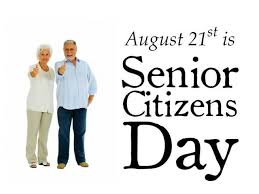Information Overload Day – October 20, 2022, history, significance
Information Overload Day comes up on October 20 every year. As the name suggests, this day is for taking a step back from the amount of information we’re faced with on a daily basis. From social media and online news to emails and text messages, we’re constantly bombarded with a plethora of information. On this day, we allow ourselves to take a break.
History of Information Overload Day
Information Overload Day was first celebrated in the year 2007. The Information Overload Research Group (IORG) created this awareness Day. They have created this day to call attention to the never-ending fire hose of data that threatens each and every organization.
The celebration of the Day raises awareness to look at what happens when employees and customers are overloaded with too much information. The IORG in 2015 has challenged the corporate world by lowering the overload by sending twenty percent fewer messages per day.
When the amount of information surpasses the capacity of the human, then information overload will occur. The person will find it difficult to make the right decision at this stage. In other words, this leads to a reduction in decision-making ability. We are overwhelmed with text messages, emails, and more information in everyday life. All these results in the loss of each’s ability to manage their thoughts and ideas.
HISTORY OF INFORMATION OVERLOAD DAY

Information Overload Day was created by analyst Jonathan Spira in 2009 when his research firm, Basex, cited information overload as their “Problem of the Year”. As a way to generate more awareness about the issue, the company held “Information Overload Awareness Day” on August 12.
The Information Overload Research Group (IORG), which was also founded by Spira, joined as a sponsor of the day. During its first observance, the day witnessed 350 workers participate in an online event from more than 30 countries around the world. In 2010, Information Overload Day was moved to October 20 and has continued to be observed on that day since.
According to Encyclopedia.com, information overload has been defined as “excessive flows and amounts of data or information that can lead to detrimental, computational, physical, psychological, and social effects.” When a person is burdened with a large amount of information, it can affect their ability to process issues effectively.
The term was first used in 1964 by Bertram Gross, a professor of political science, in his book “The Managing of Organizations”. However, the term didn’t become popular until the release of a book called “Future Shock”, written in 1970 by a writer and futurist called Alvin Toffler.
In the digital era, information is literally at everyone’s fingertips. The immense pressure to churn out new and exciting information, coupled with the vast number of media for its dissemination, is a major cause of information overload. The pressure to know and be known is something we all face on a daily basis. Information Overload Day is a reminder to disconnect and go back to basics.
INFORMATION OVERLOAD DAY TIMELINE
1964
Information Overload Coined
Professor Bertram Gross coins the phrase “information overload”.
1970
Future Shock
Alvin Toffler writes a book titled “Future Shock”.
2009
Inauguration
Information Overload Day is celebrated for the first time.
2015
The Challenge
Basex and IORG challenge workers and organizations to send 20% fewer emails.
HOW TO OBSERVE INFORMATION OVERLOAD DAY
Reduce your output
For corporate workers and organizations, take on the challenge posed by the IORG and reduce your information output by 10 to 20%.
Filter your input
Not all information is vital. Take a breather from information clutter by filtering the information you receive. Open only the most important emails and avoid having too many tabs open at the same time.
Take a break
If possible, switch off your devices for a while and take an information break.
5 WEIRD FACTS ABOUT INFORMATION OVERLOAD
Two billion websites
As of January 2019, the internet contained over two billion websites.
Scientific research
Every year, more than 1.8 million scientific research papers are published.
Average time on Facebook
On average, Facebook users spend 19.5 hours on the app every month.
Articles in thousands
In one week, the BBC and “The New York Times” published more than 10,000 articles.
Friend recommendations
According to Carat, 33% of millennials rely on social media recommendations from friends, as opposed to looking online themselves.
WHY WE LOVE INFORMATION OVERLOAD DAY
Time to reset
Information Overload Day is a chance to step back from all the noise and take a much-needed break from the incessant influx of media.
Time to re-evaluate
This day gives us room to examine our digital habits and evaluate how much of the information we send and receive is useful.
Time to connect
The amount of information sent and received doesn’t reflect a real-life situation. Most times, more information may mean less communication. Instead of staring at a paper or screen, we have more time to connect with the person next to us.
Sandeep Raiza — Content Writer, Website Designer, SEO Strategist, and WordPress Expert AI specialist delivering impactful digital solutions that drive business growth.Combining creative storytelling with technical expertise.



